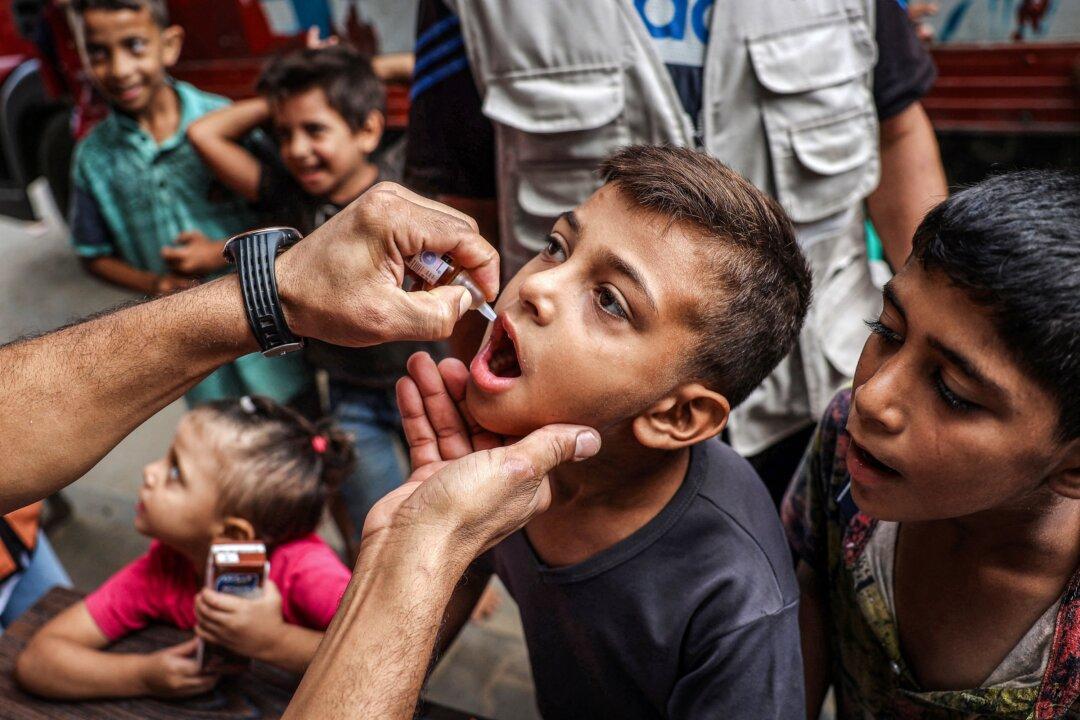Amid the ongoing war in Gaza, the World Health Organization (WHO) has completed the first phase of its polio vaccination campaign to help curb an outbreak of the disease in the war-torn enclave.
According to a Sept. 4 press release, the U.N. agency vaccinated over 187,000 children in central Gaza under ten years of age. The city recently recorded its first case of polio in 25 years, a 10-month-old who is now paralyzed in one leg.





